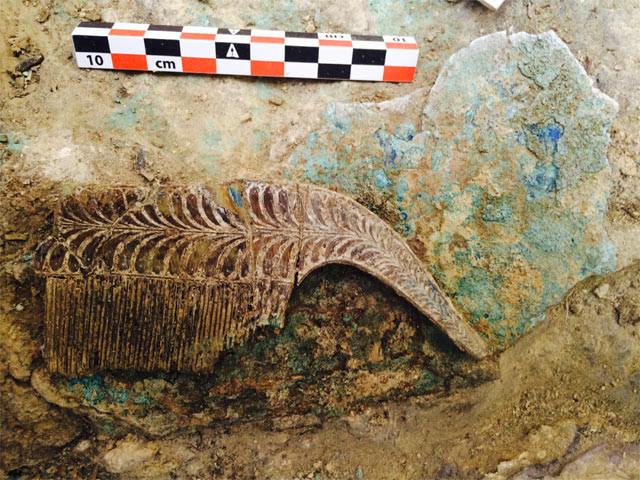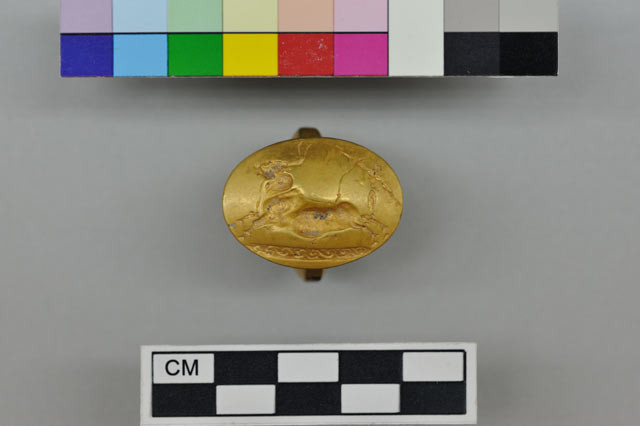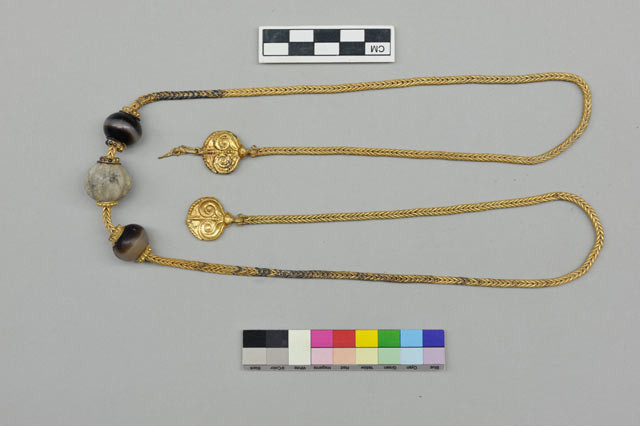Ancient Greece: Lavish treasure tomb of venerated warrior discovered in city of Pylos

Following the excavation of an ancient warrior's tomb in southern Greece, the US archaeological team has announced their findings, which includes gold rings, silver goblets and more than 1,000 fragments of jewels. The ancient city of Pylos was the final resting place of the unknown, but nonetheless evidently important soldier who may have been a well-regarded figure in the early Mycenaean period – around 1,500BC.

The Greek Culture Ministry described it as "the most impressive display of prehistoric funerary wealth in mainland Greece which has come to light in the past 65 years." Jewellery and weapons once surrounded the wooden casket. Signet rings, gold and silver goblets as well as a sword were the highlights of the find in the tomb, which stands at 2.4 metres in length and 1.5 metres wide.
On top of the coffin were "copper jugs, large copper basin, thin copper strips possibly derived from the armour of a warrior and drilled chaflioi boars from the helmet of the warrior," but these had fallen off over time, according to the ministry.
Archaeologists Jack L Davis and Sharon R Stocker, from the University of Cincinnati said: "The placement of so many jewels at a man's grave also challenges the widely held conviction that jewels were mainly used in women's burials."

Early analysis shows that the warrior died when he was between 30 and 35. The Mycenaean civilisation was one of the earliest European civilisations and had spread across the eastern Mediterranean by 200BC.
© Copyright IBTimes 2025. All rights reserved.






















